Challenging the current cosmological model, a new study published in the Monthly Notices of the Royal Astronomical Society suggests that the age of universe may be nearly twice as old
This research around studying space and our universe sheds light on the “impossible early galaxy problem.”
Age of the universe estimated at 26.7 billion years
According to the study’s author, Rajendra Gupta, a physics professor at the University of Ottawa, their newly-devised model indicates that the universe is 26.7 billion years old, significantly older than the previous estimate of 13.7 billion years.
The mystery of early galaxies and methuselah stars
Astronomers and physicists have traditionally determined the universe’s age by measuring the time since the Big Bang and studying the oldest stars based on redshift observations.
However, the existence of stars like Methuselah, which appear older than the universe’s estimated age, and the discovery of early galaxies with advanced evolutionary characteristics have perplexed scientists.
These early galaxies, observed only 300 million years after the Big Bang, exhibit levels of maturity and mass typically associated with billions of years of cosmic evolution, presenting a significant puzzle.
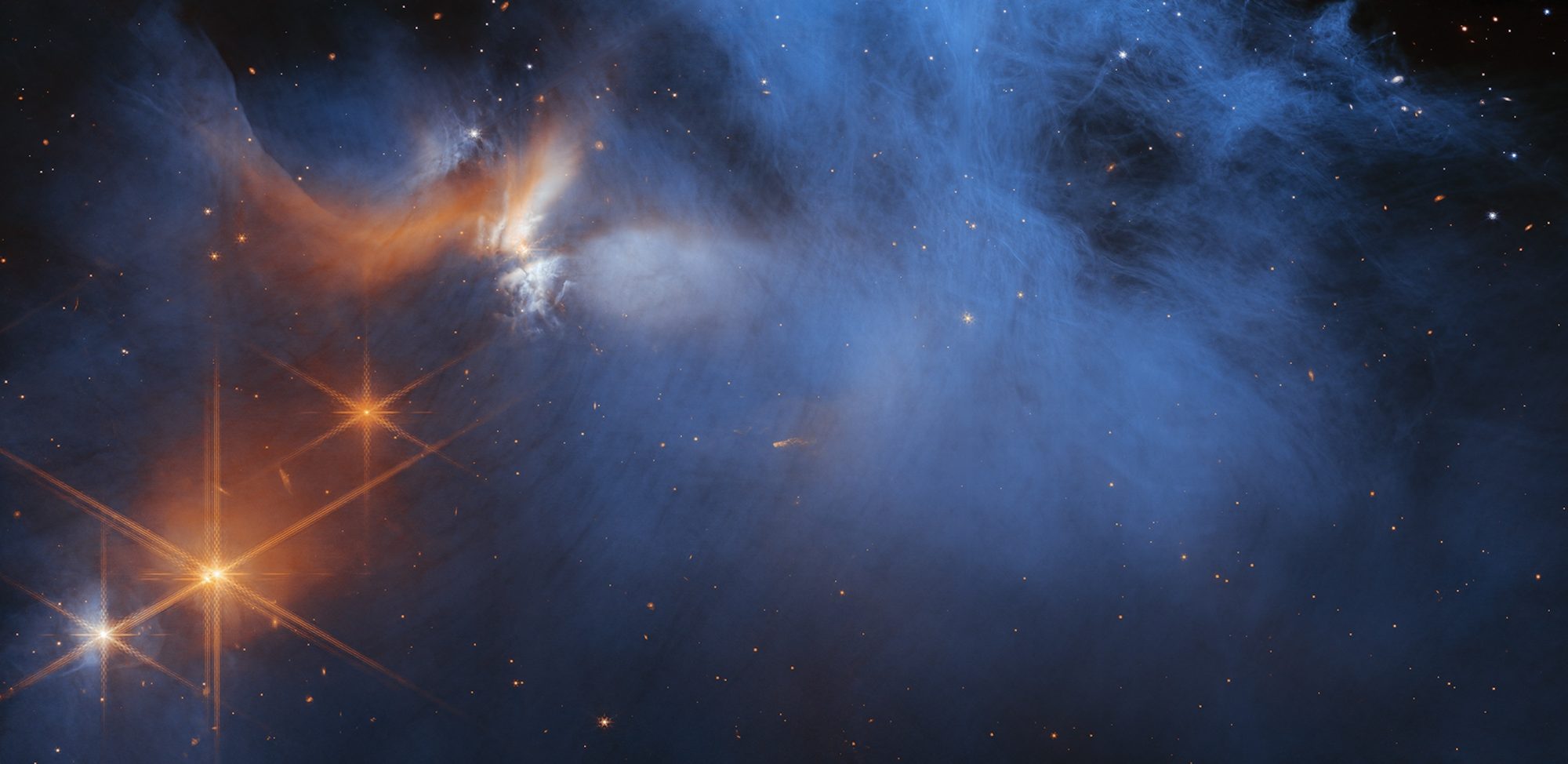
Zwicky’s tired light theory and coupling constants
To address these challenges, Gupta introduces Zwicky’s tired light theory, which proposes that the redshift of light from distant galaxies is caused by the gradual energy loss of photons over vast cosmic distances.
By allowing this theory to coexist with the expanding universe, Gupta suggests a hybrid interpretation of redshift that explains the observations more accurately.
Additionally, Gupta incorporates the concept of evolving “coupling constants,” as theorised by Paul Dirac, which are fundamental physical constants governing particle interactions.
By allowing these constants to vary over time, the formation timeframe for early galaxies observed by the James Webb Space Telescope can be extended from a few hundred million to several billion years.
This provides a plausible explanation for the advanced development and mass observed in these ancient galaxies.
Revising the cosmological constant
Gupta proposes that the traditional interpretation of the “cosmological constant,” responsible for the universe’s accelerating expansion, needs revision.
Instead, he suggests a constant that accounts for the evolution of coupling constants. This modification in the cosmological model helps solve the puzzle of small galaxy sizes observed in the early universe, allowing for more accurate observations.


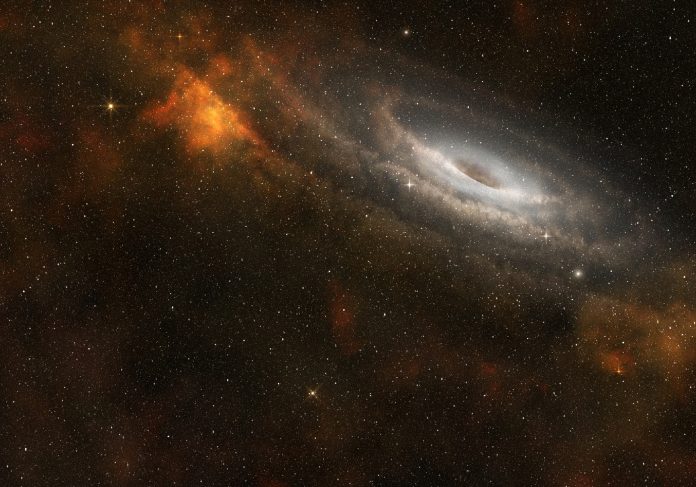
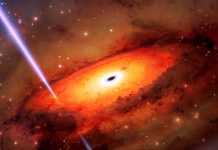
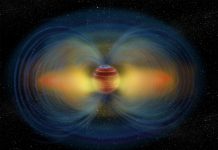
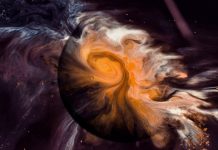
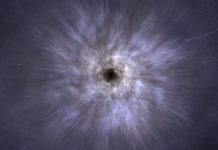

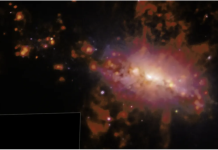
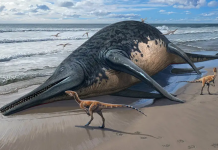





ok, look I’m no scientist and I don’t really claim to be of any religion but, and this is going to sound a bit crazy I have a stupid theory that kind of answers all our questions about this problem. I know that according to the bible and the book of genesis God created the universe. When exactly I can’t really say, but he did say that he created the heavens and earth all at the same time. Now, for the sake of argument lets say he did. That means he created all the galaxies and other stuff in an instant. ( impossible scientifically I know ). But lets say he did. Now in the aeons of time and space movement of matter will occur due to gravitational interaction of matter black holes and other stuff. Given that this movement has had a very long time to develop I would imagine that there would be plenty of time for things to get very far away. ( billions of years… ). What I’m saying is that what we are looking at when we see these galaxies ARE the perhaps some of the original galaxies that God, or who-ever made the universe. Of course we don’t know if they are…they could be much older than that.
Can you provide repeatable evidence that this “god” character is real? If not… Why would I have any reason to believe you? At all?
Fact: The universe exists.
Fact: Every single thing inside the universe is the EFFECT of a CAUSE
The only logical conclusion: The universe itself was created.
Just keep in mind that just because a human mind doesn’t perceive, understand, or see the creator behind the scenes, doesn’t negate the fact that there must BE a creator.
Please reply if you have a compelling, logical rebuttal.
Does the universe exist?
You’re simply saying that because we don’t know how everything in the universe happened it must have been god. People have been using that same argument since the Stone Age. Imagine trying to explain to a cave man how lightning and thunder actually works. Every time there’s a door science hasn’t been able to unlock yet people say “that’s unknowable because it’s just god back there”. God is just the simplest and easiest answer to these questions. The more we understand about the universe the more it becomes apparent that it is never a simple or easy answer. The universe is unfathomably large and perplexing and the human mind is not nearly big enough to probably ever understand it all. But I would think that after thousands of years of people using god to explain the unexplainable, only to inevitably have it explained, that people would stop falling back on this trope.
“The universe is unfathomably large and perplexing and the human mind is not nearly big enough to probably ever understand it all.”
Yet folks like you can “know” that God does not exist? Really?
A creator? Are you assuming a conscious creator? Some intention? Or just that some cause lead to another?
Let me give you another problem. Does the universe even exist? How we define existence? What about the fact that everything including atoms are 99.99 precent void?
The creation of the universe may be the effect of another cause that doesn’t require a creator. True enough, cause and effect seems to be consistent, but you made a link from cause to creator that doesn’t seem justified.
How does a creator decide to create without a constant such as entropy? Which by all accounts may be the reason we experience ‘time” as we know it. Without time, a creator cannot create, without a universe, there is no time, ergo, without a universe, there is no creator.
The logical conclusion of all of this is that the universe exists simply because it has to.
Please don’t try and bring an imaginary sky fairy into any serious scientific discussion
Find a massive problem with the fudge that is the standard model, then fudge the age of the universe, then expect that everything is okay! It’s NOT! Making stuff up, to solve ‘problems’ IS NOT Science! I propose a new universal constant, the fudge constant! It’s the value of the lengths scientists will go to, in order to pretend their holy grail is perfect. The fudge factor multiplied by amount of scientists who only care about funding = the fudge constant!!!
Solving problems in a theory and then testing the model using the stuff they “made up”, is the basis of all science.
You don’t have a clue.
Wow! Don’t be a tit! This is just a theory… that’s how science discovery works. Many theoretical scientists with intellects much bigger than either of ours will come up with different ideas of how to explain something we don’t understand, and then its the job of the engineers and mathematicians to create ways to test these ideas to see whether or not they are plausible. This is just a theory, which if correct could predict that the universe is much older than previously thought. No need to get all bitchy about it lol. Scientists have never said with any absolution that the universe is 13.8 billion years old, this is just the number that is churned out when using the best model available to them. I’m struggling to see how anyone can find a way to have a problem with this article.
Suspicious that the new number is roughly twice the original 13.7 billion years. Could it be that they simply didn’t factor in that WE are moving away at roughly the rate as what is being measured?
Prior to the very recent observation and confirmation of time dilation in redshifted light, and one entirely consistent with the stretching of space, there could have been room for something like a tired light hypothesis (tired light would not be subject to time dilation), but this now seems rather well excluded. In fact, we can now for the first time take the stretching of space, divide it by the measured time dilation, and compute a rough age for the universe in this new way, too. And guess what, if we do so, it’s still roughly the same ~13 billion years range, too. As for making up a “belief” that constants must have somehow been “different” and hence must have changed over time simply because that better fits your already desired outcome, that’s not science either.
I think the universe is infinite in time and space. Big Bangs happen regularly.
I Agree
I don’t understand why everyone is so latched on to the Universe having a beginning and ending.
I believe it has and always will be here, there is no real time it’s an illusion how else could 2 properly functioning clocks tick at a different speed due to their location to gravitional mass. Also how can we use time to evaluate the age of the universe when the Earth has not always revolved around the Sun. There is no time it always Now
It is an emerging theory. It will need to be tested and tossed around. it may be Supportable. it may be proved wrong. It does at least attempt to answer the question about extremely developed and mature galaxies etc existing so soon after the current estimated big bang date.
It would be interesting to find out what happens to the energy of photons that is so called lost in Tired Light theory?
Conservation of energy would seem to state that energy is transferred or transformed or stored but not lost. We still don’t know what dark energy and dark matter are or how they are formed
It’s good to hear debate around this, though I lack in the depth of knowledge to add to the debate. I’ve never got the need for a “beginning” of a universe or thought it made sense. Or is that just my lack of ability to comprehend a time before matter existed?
It always seemed likely that what we can see is limited in some way, rather than not existing before the earliest light we can see.
26 billion years of earth time?with this gravity? Is it 26 billion years for a person in another Galaxy and maybe near a dark hole and with different gravity and different experience of passing time? What is this announced time based on?
A really interesting time for cosmology. Taking the red shift and working back came up with 13.8 billion years. Well that doesn’t work anymore so what now. Fudging the speed of light or the fundamental laws of physics to patch the method are a shot way out in left field. Once we do that we enter into a fantasy where anything is possible. Bright people are trying to come up with a testable new explanation.
Or it is a political agenda or preparation for the coming space age of competition, they are trying to manipulate the entire science of cosmology for their own benefit.
I don’t understand is why there is this apparent necessity in the human mind that there ever needed to be a beginning or an end to the universe; is the entire body of human kind’s accumulated scientific knowledge, really based upon observations of its own manifestation? We; for some childish reason can’t accept that the universe was always here, and always will be? We see an expansion; but was it really the beginning of everything, or did something really big, blow up in our neighborhood many long years ago?
So, for the strange observation that some galaxies appear to have existed prior to the “Big Bang”, shouldn’t come as a surprise to anyone; those, apparently, were the galaxies that were far enough away from the blast site, that they survived the blast wave, what all that might have consisted of.
As concerns black holes, we know that in the absence of countering forces, there’s an upper limit to how much mass can accumulate at a particular volume before it collapses into a black hole; but, is the opposite of that, also, possibly be true? Is there an upper limit to black hole mass before it becomes unstable and explodes? I’m not all that into math, but it seems that, like everything else in this universe, that there should be an upper limit. So, what would be the multiplicative inverse of planks constant if expressed as either mass and or energy? Since, supposedly, planks constant describes the smallest possible event in the universe, the the multiplicative inverse should describe the largest possible event; would that describe what happens when a black hole goes beyond that value?
And; since, effectively, gravity is the equivalent of space-time distortion; couldn’t we figure out when a black hole would become unstable as a sort of a four dimensional geometric mathematical problem that our computers should be able to solve without too much difficulty?
Not that it really matters all that much one way or the other, because it looks like our political leaders are hell bent on killing us all, because of some sort mental illness, genetically caused, or otherwise; the species is really sad sack; that the majority of the Earth’s population has no control over the destiny of their species, because, of the psychopathic behaviors of a very small number of its members; apparently, either no interest in stopping its inevitable extinction, or no ability to stop it.
Science is nice, but if you all stand by and watch things like the genocide in the Ukraine go down, that the Western psychopathic leaders call a war; you’re all doomed to extinction, and probably very soon at that. I love science, but, as a species, humans are some really dumb animals.
This translation by Google, I hope it conveys what I want.. In the religion of Islam, the Creator says that contemplating the creation of the heavens, the creation of the earth, and the creation of the human soul will lead to human thought going astray. And far from the truth. Therefore, the Creator explained to us the events of creation with extreme precision and their stages, and Muslims who are close to the religion teach them. They must reveal it to the world so that they know that the Holy Qur’an is the truth revealed by the Creator of the universe. One of the most evidences is that the Earth is the oldest body in the universe. Scientists will find out soon
The Problem is, when someone mentions God, people go on the defensive, & therefore go to extremes in their Responses & comments.
I’m a Christian. I also believe in the Scientific Standard Model of the universe. ( even though it has been tweaked over the years).
What people forget is, that, on a universal scale, we have only existed for a brief flicker.
This leaves plenty of time for a higher being, like God to have done something.
Looking at the Cosmos Objectively, despite the fact that it could have come into existence by itself, no one can really prove one way or the other.